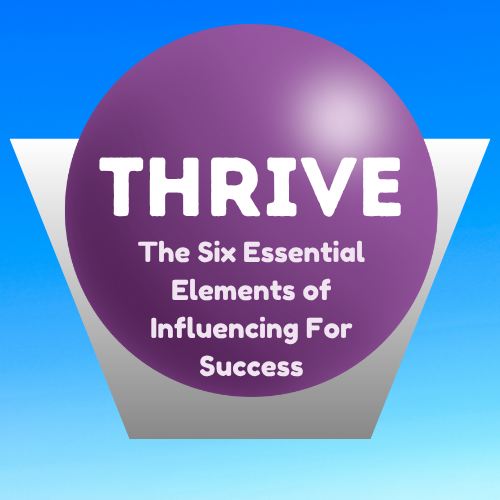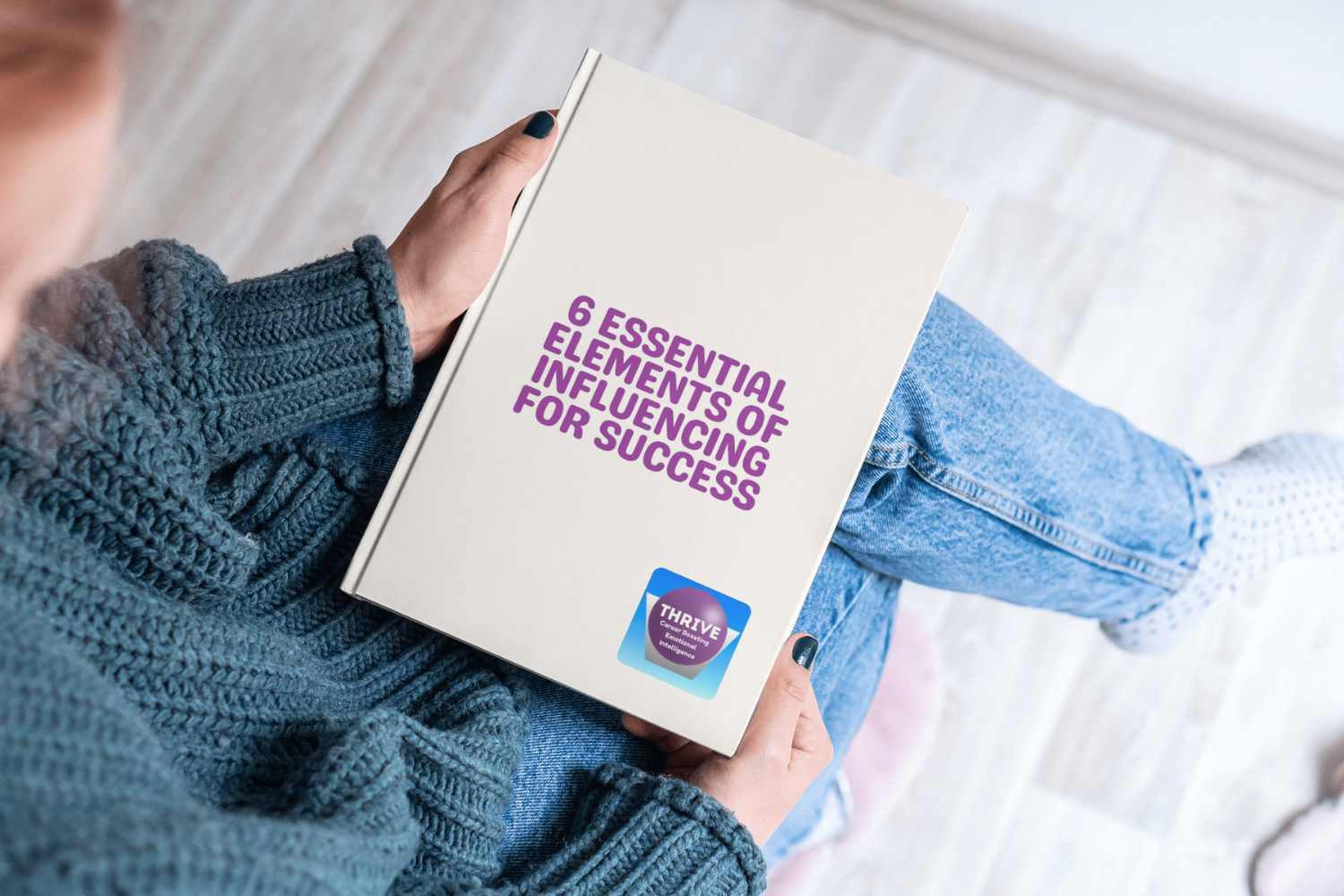THRIVE - The Six Essential Elements Of Influencing For Success.
Influencing for success?
I have to be honest with you, I cringe when I hear the phrase ‘Influencing for Success’! I am not one of those people who jump out of bed with a clear direction in my head and walk every step in a purposeful ‘ growth mindset’ kind of way. That is what that phrase conjures up to me! I am not that type of person but that doesn’t mean that I can’t choose to make changes in my life that are positive and that seek to increase the number of opportunities that come my way.
If I was to be charitable to those who have a growth mindset (and I am still thinking about the stereotype), then what links them all is a belief that internal change is possible and with that comes growth. With that belief comes a drive to tackle challenges, push through and aim for objectives. For someone with a ‘fixed mindset’ they may not believe that they can change and as such may be more avoidant of challenges and the learning that comes from that.
The reality is, that whilst there are general indications that 50% of the UK population has a growth mindset (and this statistic is not even scientifically proven), most of us will sway between the two extremes depending upon the context and situations we find ourselves in.
Personally, I believe that we spend all day judging ourselves in terms of success. Even if we do not have long term goals for success, we certainly have short term ones. You could argue that with everything that we do, we will judge how successful we are in doing it or what the outcome was and that in turn affects how we view ourselves and relate to others.
For example, we aim to get to work on time, but the traffic causes problems and we become late which then in turn might cause anxiety as to what impact being late will have. I might find myself wondering if my line manager now has a problem with me or that colleagues might weigh in with some sarcastic comment that is tinged with judgement? Will that affect how my performance at work is viewed?
Another example could be worrying about the impression that we gave to the new senior manager or new colleague. Did we successfully win them over?
I could quote lots of examples but for sure, when we interact with others at some level we will judge ourselves for how that interaction went, especially if it didn’t go well.
Success is important for us.
Whether we have long term goals or if we are simply trying to successfully navigate what life throws at us, success is going to be important to us and in both cases, if we rely on our emotional automaticity to deal with all those ups and downs, without a healthy dose of objectivity, then we are technically ‘winging life’ and as such successes large and small will be largely down to a probability related to where you sit on that spectrum between the fixed and growth mindset.
With more control of our emotional automaticity, note that I am not talking about emotions themselves, but our automatic reactions to how one feels and resultant behaviour, we have an opportunity to increase the probability for success in our relationships across the workplace and resultant outcomes.
Would you like something to help you to be more successful or influential in your interactions with others?
Let me give you something that will help you to be more successful with relationships at work (and any other relationship too).
Click the graphic below to get the guide.
Keep checking in with these articles for ways to improve your own career boosting emotional intelligence or become a subscriber and be eligible for some useful benefits.
What you will gain from subscribing.
You will be the first to know about resources and information that you can utilise to enhance your career boosting emotional intelligence.
You will be eligible for community exclusive discounts on webinars, workshops and THRIVE 1-2-1 Coaching Sessions.
Free email support for any questions that you might have about developing your own career boosting emotional intelligence.
About John Hicks.
Since 2012, after a career in science and technology starting as a bench chemist then moving into sales and marketing and ultimately senior management, I decided to start my own company to help clients to see the truth in their abilities rather than fall for the deceitful thoughts that come with having a low self-esteem.
I realised that individuals at all levels of organisations can experience overwhelm, self-doubt and be de-railed by their automatic reactions to problems rather than have choice and control in bringing about the best outcomes.
If you want to find out more about my work then feel free to look around my website by clicking here.




